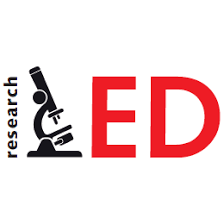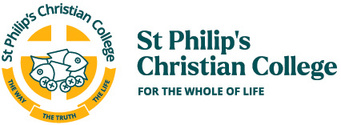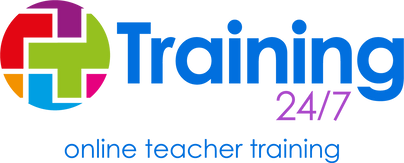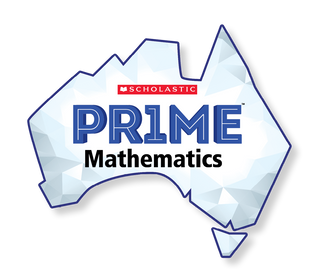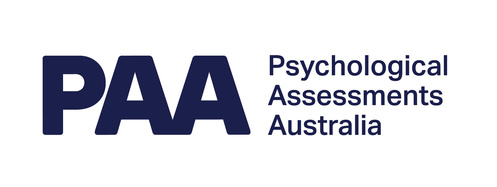ResearchED Newcastle offers education professionals the opportunity to hear from global and national evidence-informed thought-leaders and researchers on effective instructional practices for the classroom and across schools. This professional development opportunity will include international key-note Peps McCrea, an award-winning teacher educator, designer and author, well-known for his weekly Evidence Snacks.
Bringing together teachers, researchers, academics and policy analysts to learn, question and share up-to-date knowledge and research, the day will provide invaluable insights. In addition to key note presentations, there will be streams for mathematics, writing, interventions, and classroom behaviour, motivation and AI.
ResearchED events have been held around the world but this is the first time the event is being held in the Hunter Region. Join us for this great opportunity to learn, connect and network with other educators.
Tickets
Be sure to secure your ticket to researchED Newcastle. There is a discounted price available for groups
General ticket price $80
Groups of 5+ $65 each
The event will be held at the St Philip’s Christian College Theatre, on the corner of Station Street and Harriet Street Waratah. Car park entry is on Harriet Street. Street parking is also available.
about
the speakers
Peps McCrea
The international key note speaker is Peps McCrea, an award-winning teacher educator, designer and author. Peps is Director of Education at Steplab, author of the High Impact Teaching series and has three Masters degrees, and Fellowships from the Young Academy and University of Brighton.
Prof Andrew Martin
Prof Andrew Martin, BA (Hons), MEd (Hons), PhD, is Scientia Professor, Professor of Educational Psychology, and Chair of the Educational Psychology Research Group in the School of Education at the University of New South Wales. Andrew is recognized for his research on student motivation, engagement, learning, and achievement.
Nuella Flynn
As Principal Policy Analyst at the Australian Education Research Organisation, Nuella has led national education initiatives focusing on quality teaching, assessment, and school leadership development. Nuella has expertise in professional learning development and delivery and has been instrumental in crafting educational resources to support teaching and learning.
Dr Ben Jensen
Dr Ben Jensen, the Chief Executive Officer of Learning First, has provided guidance on education strategy and reform to governments in Australia, North America, Europe, the Middle East, and Asia. Prior to establishing Learning First in 2014, Dr. Jensen held the position of Director of the School Education Program at the Grattan Institute.
Dr Jennifer Buckingham
Dr Jennifer Buckingham OAM is Executive Director, Policy and Evidence at NSW Centre for Education Statistics and Evaluation, Department of Education. She is also Director of the Five from Five Project, an initiative offering evidence-based guidance on successful reading instruction methods. Jennifer collaborates with educational systems, schools, and educators to enhance teaching and evaluation practices.
Behaviour & wELLBEING STREAM
speakers
- Cate Whiting (AERO)
- Dr Vicky Leighton (Brisbane Anglican Church Grammar)
- Rebecca Birch (Queenwood Sydney)
WRITING STREAM
speakers
- Christine Jackson (AERO)
- Kathleen O’Rourke (Grose View Public School)
- Justin Caban (Training 24/7)
- Lyn Stone (Lifelong Literacy)
mATHS STREAM
speakers
- Martin Ravindran (Templestowe Heights Primary School)
- Dr Greg Ashman (Clarendon College Ballarat)
INTERVENTION STREAM
speakers
- Michael Roberts (Mastery Schools Australia, Queensland)
- Dr Ben Bailey (University of Newcastle)
- Dr Kate Barton (St Philip’s Christian College Newcastle)
SYSTEM CHANGES & ai STREAM
speakers
- Assoc Prof Jason Lodge (University of Queensland)
- Dr Jennifer Buckingham (CESE)
- Sonia Loudon (Elevation Secondary College)
- Patrick Ellis (Catholic Education Canberra-Goulburn)
- Jeanette Frost (AERO)
- Jessica Colleu Terradas (Catholic Education Canberra-Goulburn)
With thanks to
EVENT SPONSORS
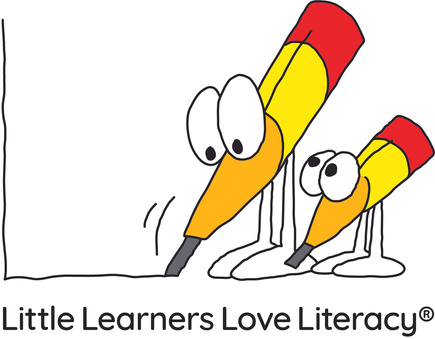
contact us
Nickey Bright
Director of Strategic Management
St Philip’s Christian College, Newcastle
(02) 4960 6600
nickey.bright@spcc.nsw.edu.au
Conference schedule
8:00 | Arrival and registration | |||
8:30 | Welcome | |||
9:00 - 10:00 | Peps McCrea (Ambition Institute, UK) | |||
10:00 - 10:50 | Ben Jensen (Learning First) | |||
10:50 - 11.15 | Morning tea Sponsored by Get Reading Right | |||
Behaviour/ AI ALC Level 2 | Maths Sponsored by PR1ME Mathematics Theatre | Writing Sponsored by Little Learners Love Literacy MU4 | Interventions Sponsored by PAA ALC Level 1 | |
11:20 | Cate Whiting (AERO) | Martin Ravindran (Templestowe Heights) | Christine Jackson (AERO) & Rebecca Birch (Queenwood) | Kate Barton (St Philip’s Christian College) |
12:00
| Rebecca Birch (Queenwood) | Greg Ashman (Clarendon College) | Kathleen O’Rourke (Grose View Public School) | Michael Roberts (Mastery Schools Australia) |
12:40 | Vicky Leighton & Stephen Taylor (Brisbane Anglican Church Grammar) | Jennifer Buckingham (Centre for Education Statistics and Evaluation) | Justin Caban (Training 24/7) | Ben Bailey & Karen Ray (University of Newcastle)
|
1:20 | Lunch Sponsored by Training 24/7 | |||
2:10 – 3:10 | Andrew Martin (UNSW) | |||
3:15 – 3:55
| Jeanette Frost & Hannah Matthews (AERO)
| Sonia Loudon (Elevation Secondary College) | Jeanette Breen (No More Marking) | Nuella Flynn (AERO) |
3:55 – 4:35 | Jason Lodge (UQ)
| Patrick Ellis (Catholic Education Office Canberra & Goldburn, Catalyst) | Lyn Stone (Lifelong Literacy) | Jess Colleu Terradas (Catholic Education Office Canberra & Goldburn) |
4:40 – 5:10 | Panel discussion: Andrew Martin, Peps McCrea, Nuella Flynn, Greg Ashman and Jennifer Buckingham | |||
5:10 – 5:15 | Closing remarks | |||
Speaker abstracts
Bio | Abstract |
Dr Greg Ashman is Deputy Principal at Ballarat Clarendon College, Victoria. He writes a Substack newsletter at fillingthepail.substack.com and has written three books: The Truth about Teaching: An evidence-informed guide for new teachers; The Power of Explicit Teaching and Direct Instruction; and Cognitive Load Theory: A Little Guide for Teachers. He has a PhD in Instructional Design focused on cognitive load theory. Prior to moving to Australia, Greg worked at several comprehensive schools in London. | How can cognitive load theory make us better maths teachers? In this light-hearted presentation, Dr. Greg Ashman will be reviewing the literature on cognitive load theory and asking what principles we can draw from it to improve the teaching of mathematics. In the process, he will bust a few myths and explain why cognitive science does not support some commo maths teaching practices |
Dr Ben Bailey is a certified practicing speech pathologist and research academic from the University of Newcastle. His research focuses on supporting children’s communication development, including oral language, reading and writing, play and community participation, through innovative, co-designed interdisciplinary practice. By exploring the opportunities of interdisciplinary practice in this way, Dr Bailey’s research aims to identify acceptable supports with meaningful impact on children’s communication and broader life outcomes. Dr Karen Ray is a registered occupational therapist and lecturer at the University of Newcastle. Her experience encompasses working with schools, both as part of learning support teams and in conducting research focussing on foundational skills including handwriting. Through collaborative approaches to foundational skills, Dr Ray aims to identify effective ways to support and enable children’s educational participation. | Co-designing an early transcription skills intervention for children with autism – Start Write Children with developmental disabilities may experience difficulties in the early stages of learning to write, with some failing to become fluent writers over the longer term. In this presentation, Dr Ben Bailey and Dr Karen Ray will discuss recent findings on evidence-based early writing instruction for children with autism focusing on spelling and handwriting. The presentation will also showcase the team’s current research which involves working with members of the autistic community, including adolescents with autism, parents of children with autism, educators and allied health professionals, to co-design an early transcription skills program specifically for children with autism (Start Write). |
Dr Kate Barton serves as Lead Educator of Gifted Education K-12 and Director of Learning and Teaching K-6 at St Philip’s Christian College in NSW. She leads initiatives to improve learning through evidence-based practices, including core teaching methods, MTSSs and coaching, and is completing research with UNSW into characteristics of young intellectually gifted children. | Reconciling gifted and explicit teaching practices though Cognitive Load Theory Gifted students typically learn, think and express themselves in more complex ways and at an accelerated rate relative to same-age peers. Gifted teaching practices centre on inquiry and self-directed learning without teaching prior domain-specific knowledge, with teachers assuming the role of “learning facilitators”. Yet instructional designs where learners “discover information” are at odds with our understanding of how all students learn – after all, these students share the same brain architecture as all others. I discuss how a Load Reduction Instruction (LRI) framework can promote learning and engagement, with the novice-expert continuum and expertise reversal effect central to our understanding of teaching high ability students. |
Jeanette Breen is an experienced education practitioner from Victoria, Australia. In addition to her education role at Templestowe Heights Primary, she has joined UK based company No More Marking as the bridge for schools. Using innovative writing assessment techniques, including Comparative Judgement, Jeanette works with schools to help realign writing instruction using data to sequence next steps. | Comparative Judgement is a unique process that has allowed us insights into student writing that we do not gain from assessing writing in any other way. The data correlations have led to deeper understandings of writing misconceptions, and the improvement of whole school teaching approaches. This presentation will share the research on how this reliable writing measurement technique can influence improvement and student outcomes. |
Rebecca Birch is a teacher of English and the Director of Research and Practice at a top 50 independent school in Sydney, Australia. Rebecca has consulted for Ochre Education and has presented on literacy for Catholic Education Canberra Goulburn and Catholic Education Tasmania. She has also appeared on panels for ResearchED and the Gonski Institute for Education. Her current research interest is the link between explicit instruction and student wellbeing. | Using Science of Learning to Support Student Wellbeing Wellbeing issues are increasing. However, classroom practices that provide structure through explicit teaching and combine autonomy support with guided practice, like load reduction instruction, reduce behaviour issues and motivate students. Teaching memory, retrieval, and desirable difficulties at the secondary level empowers students to become independent learners. In addition, effective study tools alleviate student stress that can arise from high-stakes testing and reinforce feelings of capability. Rebecca Birch discusses how the Science of Learning impacts the classroom and beyond, offering practical, evidence-based strategies for supporting students' pastoral care. |
Jennifer Buckingham is the Executive Director of CESE Policy and Evidence in the NSW Department of Education. She was formerly Director of Strategy and Senior Research Fellow at MultiLit and before that Director of Education at The Centre for Independent Studies. | The role of CESE in an evidence-informed public education system The Centre for Education Statistics and Evaluation was established a decade ago as the first hub for education data and evaluation across early childhood, schooling, training and higher education. In that time it has produced influential flagship publications on subjects including Reading Recovery and cognitive load theory. In this presentation, Jennifer will talk about the work CESE is doing to help public education to be evidence-informed, effective and equitable. |
Justin Caban is a teacher, educational consultant and curriculum designer. His expertise in lesson design and lesson delivery is highly sought after by key stakeholders, as exemplified by the hundreds of demonstration lessons he conducts each year for teachers and leaders throughout Australia. Justin is a passionate and increasingly popular presenter, and a co-founder of the online professional learning platform, Training 24/7™️. | Scaffolding text structure: Teach writing using Blanks® and Blocks® Writing is incredibly complex. Teaching students to write efficiently and effectively is even harder. Using writing scaffolds like Blanks® and Blocks® reduces the cognitive load on working memory, resulting in improved accuracy, clarity of purpose and an increase in the sophistication of composition. Find out how schools right across Australia are using these structures effectively as the spine of integrated English units. |
Jessica Colleu Terradas is the Senior Officer Literacy specialist in Catholic Education Canberra & Goulburn, contributing to the implementation of Catalyst, a system-wide education approach to teaching and learning. Awarded a Churchill Fellowship, she met with international leading experts to investigate effective literacy screening and instructional practices to support adolescent strugglers. She is also a PhD student at the Centre for the Advancement of literacy with Professor Anne Castles, exploring adolescent literacy research and practice. | Exploring global perspectives: insights from my Churchill Fellowship The presentation will highlight the key findings of my Churchill Fellowship report (released in June 2023) where I investigated language and literacy screening and intervention practices for at-risk students. The proposed solution involves a multi-tiered approach that includes universal screening, progress monitoring, and increasingly intense instruction for those who struggle in reading. The presentation will include international case studies. Link to the Churchill Report and website |
Patrick Ellis is the Education Lead at Catholic Education Canberra-Goulburn (CECG). Patrick has been in Principal and leadership roles across Catholic Education Parramatta, Wilcannia-Forbes and Canberra-Goulburn for the past 25 years. Patrick is a certified Lead Teacher and holds a Masters of Adolescent and Child Welfare. Patrick now leads the Teaching and Learning at CECG, including Catalyst, CECG’s system wide approach to teaching and learning. This work, informed by the Science of Learning and Science of Reading, has involved designing and implementing professional learning, resources and support across all 56 schools focusing on high impact teaching practice. | Catalyst: Implementation to Impact - Catholic Education Canberra-Goulburn’s system wide transformative teaching and learning approach Transforming lives through learning - this is the purpose of Catalyst, the approach to teaching and learning at Catholic Education Canberra-Goulburn (CECG) that provides professional learning to support teachers to apply evidence-based practice in the classroom. Catalyst is a significant system-led implementation of the Science of Reading and Science of Learning. Centring on the teacher as the most important learner, it brings together theory and practice for a precise focus on curriculum, pedagogy and assessment across CECG and improve the learning outcomes of over 22,000 students. Now in its fourth year of system wide implementation, Catalyst has evolved over several years from a careful analysis of student outcomes, collective knowledge building of research and a determination to improve teaching practice across our 1000 classrooms. This presentation will explore the Catalyst journey, from implementation to impact at system, school and class level. Catalyst website |
Nuella Flynn is Principal Policy Analyst at AERO, leading work translating evidence on how students learn. She was a Secondary Science Teacher, and worked for the Global Education Project delivering professional learning and teaching resources for Australia’s international aid program. Nuella has led a range of national education projects in the areas of quality teaching, assessment and school | Effective teaching in a multi-tiered system of supports AERO’s model of learning and teaching can be used within a multi-tiered system of supports (MTSS) to maximise outcomes for all students, including those struggling with foundational literacy and numeracy skills. Learn about the consistently effective teaching practices that align with how students learn and the key characteristics of delivering MTSS within secondary settings. With examples from schools across Australia, understand how to define tiers of interventions, and access practical guidance on operational elements including timetabling, staffing and using data from screening and progress monitoring assessments to respond to student needs. |
Jeanette Frost is an Implementation Consultant at the Australian Education Research Organisation. Jeanette has 21 years teaching experience across multiple primary school settings, with extensive middle leadership and instructional coaching experience. Hannah Matthews is an Implementation Advisor at the Australian Education Research Organisation. She has experience in education policy, research and practice, having led national work on professional learning, research on childcare deserts and working as a primary school teacher. | A deliberate and structured approach to implementing Evidence Based Practices: what AERO is learning alongside schools. Evidence-based practices provide schools with the knowledge of ‘what’ is most likely to work to improve outcomes for their students. But even the most well-defined practices can fail to have impact if implementation isn’t deliberate. This presentation will share the key ideas of a deliberate and structured approach to implementation, and will offer insights about implementation that AERO has learned from working closely with a small number of schools to implement explicit instruction. |
Christine Jackson began her career as a secondary English teacher and has been involved in several projects at school, system and policy level. Christine's work focuses on the teaching and assessment of writing. She is passionate about working with teachers to find pathways to integrate the teaching of writing into all classrooms for improved student writing outcomes. | “Wow, there is so much more to writing sentences than I ever remembered doing in primary and high school!” Lessons learnt from AERO’s school-wide approach to teaching writing. In response to AERO’s Writing NAPLAN data analysis in 2022, which highlighted the decline in students’ persuasive writing ability, a key recommendation was to, “Conduct further research to co-design and evaluate appropriate supports for the teaching of writing, and pilot teacher professional development and initial teacher training to support explicit teaching of writing strategies for areas of potential concern identified by this research” (AERO, 2022, p.8). Drawing from past and current research, AERO’s Writing Project team collaborated with schools in three states to develop, test and refine a Writing Instruction Framework that would support teachers to prioritise writing in all subject areas. |
Dr Ben Jensen founded Learning First in 2014 and has advised numerous education systems in Australia and abroad on education strategy and implementation, curriculum reform and implementation, school improvement and accountability, leader and teacher professional development and training, and data, evaluation and accountability systems. Prior to Learning First, he was director of the Grattan Institute’s School Education Program, worked with numerous global education systems during five years at the OECD, served on expert groups for PISA and TALIS and on the Australian Government Teacher Education Ministerial Advisory Group. | Effective curriculum reform The growing research and evidence on quality curriculum will be discussed with key distinctions made between research at the school and system level. The detail of what is and is not effective curriculum will then be detailed and finally the steps schools can take to ensure high-quality curriculum is taught in their classrooms. |
Sonia Loudon is an Assistant Principal at Elevation Secondary College, a new government school in Craigieburn, Melbourne. After completing her Masters in Education Policy and Management from Harvard University, she joined the foundation leadership team at Elevation to focus on the implementation of policy and evidence within a school context. | Intellectual Preparation: a critical step to implementing high quality curriculum Evidence is clear that schools can secure better student outcomes by adopting high quality and shared curriculum resources. So why is it so hard to get teachers to use them? Sonia will share the importance and approach to intellectual preparation (IP): a teacher’s process of preparing and refining existing resources to ensure students are able to think, learn and engage with the key knowledge and skills in a lesson. Participants will understand how IP was introduced to address practical barriers to school and teacher implementation of shared curriculum resources (and in turn, maximise the impact of teachers’ planning and collaborative time) in a large and complex secondary school context. |
Dr. Victoria Leighton is Director of Staff Development and Research, and Co-Director with Dr. Terry Byers, of the Churchie Research Centre at the Anglican Church Grammar School, Brisbane. With an emphasis on teacher professional development, she has a growing profile in research and publications that focus on translating the Science of Learning for the classroom and activating Innovative Learning Environments. Steven Taylor is a Professional Development Coordinator working with the Churchie Research Centre at Anglican Church Grammar School. He is an educator of 10 years and brings over 5 years of experience as a year-level coordinator for A Learner's Toolkit. Steven focuses on translating the Science of Learning in the classroom and fostering student success by supporting educator growth through instructional coaching. | Empowering Secondary Education through Applied Research: The Churchie Research Centre’s Learner’s Toolkit - Transforming 40+ Schools and 5000+ Students. The story of how the best Science of Learning is being deployed to help secondary schools and their students master the art of study at a pivotal time in their lives. Over six years, A Learner’s Toolkit has refined a preparatory program that equips students with lifelong learning strategies. Collaborating with teachers, the program integrates Science of Learning theory into curricula. This presentation shares findings from a longitudinal analysis of data from 40+ partner schools in Australia and New Zealand. We also introduce the 'Me-as-a-Learner-Profile-Dashboard,' a tool offering a snapshot of a student's performance compared to peers at their year level, school, and other partner schools. This dashboard enables students and teachers to track their progress over time, fostering an environment that enables targeted teaching and student self-awareness. |
Assoc Prof Jason Lodge is Associate Professor of Educational Psychology and Director of the Learning, Instruction, and Technology Lab in the School of Education and is a Deputy Associate Dean (Academic) in the Faculty of Humanities, Arts and Social Sciences at The University of Queensland. Jason’s research focuses on the cognitive, metacognitive, and emotional mechanisms of learning, primarily with digital technologies. | Learning in the age of AI: What does the evidence say? The emergence of generative artificial intelligence has created feverish levels of hype in education. There are significant challenges and opportunities. However, there is much work to be done to determine how this new technology can best support student learning. In this session, we will explore the evolution of AI in education with respect to the established understanding of how students learn. Education is not going to be saved by the introduction of a tutorbot. The path forward lies in thoughtfully integrating AI to enhance educational experiences while preserving the integrity of the learning process. |
Prof Andrew Martin is a Registered Psychologist and Fellow of the College of Developmental and Educational Psychologists. He is also Professor of Educational Psychology at the University of New South Wales and Honorary Research Fellow at the University of Oxford. His research focuses on student motivation, engagement, and achievement—as well as classroom instruction, including Load Reduction Instruction. His books, "How to Motivate Your Child for School and Beyond" (Bantam), “How to Help Your Child Fly through Life: The 20 Big Issues” (Bantam), and “Building Classroom Success, Eliminating Academic Fear and Failure” (Continuum) are published in five languages. | Load Reduction Instruction (LRI): Integrating Explicit Instruction and Independent Learning How do we get the optimal balance between explicit instruction and discovery learning? How do we ease the burden on learners in the early stages of learning and then progress to more challenging schoolwork? What are the differences between “novice” and “expert” learners and what does this mean for teaching? Load Reduction Instruction (LRI) is an instructional strategy aimed at answering these questions. LRI initially involves explicit instruction. Then, at the appropriate point in learning, LRI also involves less structured approaches such as guided discovery-, problem-, and inquiry-based learning. This presentation takes a close look at LRI, its key principles, and how to implement it in the classroom to enhance all students’ learning, motivation, and engagement. |
Peps McCrea is an award-winning teacher educator, designer and author. He is Director of Education at Steplab and author of the ultraconcise High Impact Teaching series. Peps has three Masters degrees, Fellowships from the Young Academy and University of Brighton, and lots of distracting tattoos. Visit pepsmccrea.com for more. | The Science of Motivation What is motivation for learning? How does it work? How can we influence it in the classroom? This session will offer a framework of 5 big ideas from the evidence on motivation plus 5 key strategies we can use to boost attention and effort in the classroom. |
Martin Ravidran is currently the Year 3 leader at Templestowe Heights Primary School, and also a Subject Lead in Mathematics for Ochre Education. Hailing from Singapore, he holds education in high regard, and enjoys staying up to date with educational research through a variety of means | Teaching between the slides: Maximising the use of shared resources This session will focus on how teachers can maximise the use of premade resources such as slides, and break down misconceptions around teacher autonomy in explicit instruction. We will highlight quality resources that teachers can access, and argue why teachers should consider using such resources instead of reinventing the wheel. This will include how to build in responsiveness despite the use of materials such as textbooks or slides, and how they support explicit instruction. |
Kathleen O’Rourke is a 5th year FASTstream Teacher Leader at Grose View Public School in the Hawkesbury SoLaR Battalion. The only Primary Teacher to receive the inaugural Commonwealth Bank Schools Plus Early Career Teacher National Award, Kat co-convenes the Middle Leaders Forum for Think Forward Educators, holds a Master of Education in Science of Language and Reading and is a casual academic in the La Trobe Master of Teaching. | Voracious vocabulary instruction: What, when and how should we teach vocabulary? What does research say about vocabulary instruction, and how can we apply the evidence in primary classrooms? The NSW English Syllabus refers to seminal researchers Beck, McKeown and Kucan’s Tiered vocabulary words - significant but not sufficient. This session explores the nuances of applying this evidence alongside morphology instruction for Years 2-6. You too can elicit student responses such as “Don’t let the cat out of the bag is an example of idiom because it is a language phrase that can’t be understood by looking at the individual words” when teaching a vocabulary word (idiom). |
Michael Roberts transformed Broadbeach State School with a science of learning approach, achieving remarkable results. He served as Executive Director at Good to Great Schools Australia, overseeing evidence-based reforms nationwide. Michael was on the Australian Government Gonski panel and championed the Science of Learning at Learning Difficulties Australia. Co-founding Mastery Schools Australia, he also leads COGlearn consultancy and is a founding director of Science of Teaching & Learning Australia. | Founding a new School System – Mastery Schools Australia Explore the creation of a groundbreaking school system based on the science of learning. This session will delve into the origins and establishment of Mastery Schools Australia, examining the evidence-based principles that underpin its innovative methods. Attendees will learn how the school’s approach enhances student outcomes and why it stands as a model for modern education. We will uncover the reasons behind the system’s success and its impact on the educational landscape. Join us to understand how Mastery Schools Australia is transforming learning and setting new standards in education. |
Lyn Stone is an educational linguist, author, and CEO of Lifelong Literacy: an education coaching and training organisation. Her goal is to help educators awaken linguistic curiosity in their students using creative, engaging tools and strategies that are based upon scientific consensus as to what constitutes best practice | Trick or Treat? What “tricky” words show us about the whole system Every irregular word tells a story (Pinker 1999). Let’s take ten fine examples, harvested over years of asking teachers, “What word is hard to spell/ teach/ remember?” and tell their stories, whilst revealing the underlying story of the writing system. Leave this session with a bag of tricks to help you make every word-study session a treat. |
Cate Whiting is an experienced school leader and has led school improvement by applying evidence-based practices in student engagement and behaviour, pedagogy, literacy and multi-tiered systems of support. Cate is currently the Principal Teaching and Learning Specialist leading the Engaged Classrooms Through Effective Classroom Management project at AERO. | Engaged classrooms through effective classroom management The Australian Education Research Organisation (AERO) is developing practical guidance for teachers and school leaders to create safe and supportive learning environments through effective classroom management. Explore the evidence base and how the resources support teachers to refine their practice and support school leaders to lead a whole school approach to classroom management. Plans for further resources will also be shared, including a mentoring guide and tools, guidance on supporting students with additional learning needs and resources to support reflecting on and refining the whole school approach to classroom management. |
With thanks to
EVENT SPONSORS

contact us
contact us
Nickey Bright
Director of Strategic Management
St Philip’s Christian College, Newcastle
(02) 4960 6600
nickey.bright@spcc.nsw.edu.au
www.researched.org.uk/event/researched-australia/
